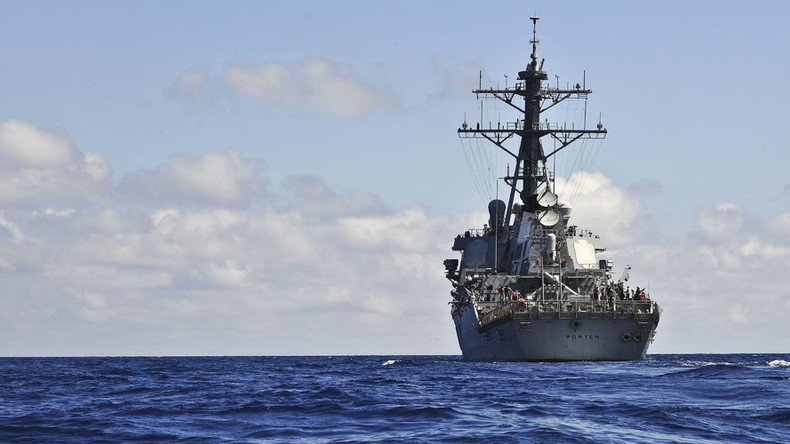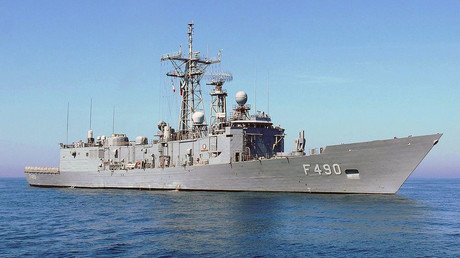‘NATO fleet in Black Sea reduces security of Eastern Europeans’

The Western military bloc should not have any problem with Bulgaria opting to take a different path, this is what democracy is about, Jan Oberg, peace studies professor, told RT.
Bulgarian PM Boiko Borisov said his country will not become a part of joint NATO fleet based in the Black Sea aimed at countering Russia's presence in the region.
Borisov was responding to a proposal from Turkey and Romania to build a closer military partnership between the three countries and NATO, the US-led military bloc that says it is acting out of concern for so-called ‘Russian aggression’.
He soundly rejected the idea, saying the Black Sea region needs to remain peaceful and that involving Turkey in any joint drills will only antagonize Russia and could even lead to war.
The initiative will be discussed in July at a NATO Summit in Warsaw.
RT: What is your reaction to the words of the prime minister of Bulgaria about NATO?
Jan Oberg: Any common sensible person would say the following: The more NATO pushes into Eastern Europe, the more Russia will have to target people in Eastern Europe. NATO is diminishing or reducing the security of people in NATO countries and where they profess to protect former Soviet Union or Warsaw Pact allies. Because when you move closer and closer, the military planning of Russia - according to Realpolitik theory - will be that they will target these places where NATO is putting up its bases, or its exercises, communication facilities or ballistic missile defense. NATO is, with this policy, reducing the security of those they profess to protect. And I would like at some point to see NATO run by adults and not these childish boys. Because they don’t know what they are playing with. They are decreasing the security of both Eastern and Western Europe now.
I am not saying that this is because Russia wants to be aggressive or wants to throw themselves over Bulgaria, I am just saying that according to Realpolitik, normal political reasoning, if, for instance, Washington was placed at Moscow and the US were placed where Russia is today, they would do exactly the same and would be very annoyed by this.
RT: How does it look when NATO member, Bulgaria, is refusing to become a part of joint NATO fleet?
JO: No problem whatsoever. NATO professes to protect democracy and in democracy we can have different opinions. I think it is very good that a state leader, prime minister or president, in Eastern Europe is saying, ‘I care more about my own citizens than I care about NATO expansionist wishes and policies’. That’s what a decent politician does in today’s Europe. They care for their own people’s security, they don’t take orders from East or West to decrease the security or increase the risk of war. So, Bulgaria’s head of state and prime minister is doing the right thing in my view. And NATO should not have any problems with a member who wants to do things differently, this is what democracy is about. This is not the Warsaw Pact and Obama is not Brezhnev.
READ MORE: Deadly irony: US calls Russia ‘aggressive’ as NATO creeps eastward
RT: Would NATO be frustrated with Bulgaria’s decision not to participate in Black Sea maneuvers?
JO: Of course, they are frustrated and will be frustrated because they want to give the impression to the world that everybody in NATO thinks the same way. That is not democracy, so this is good. Secondly, this whole thing in the Black Sea has to do with the regime change which was caused by, instigated and partly financed by the US in Kiev… The fact is that if NATO comes closer to the Black Sea, we are increasing tension where we need to decrease tension. And with the idea of NATO is probably going to present to the world in July that they want some kind of Black Sea Fleet and a long-term positioning…I don’t know how they will do it because the Montreux Convention says that if you are not the coastal state of the Black Sea, you can’t be there for more than 21 consecutive says…This is not in the interest of Europe. The whole thinking is wrong.
The statements, views and opinions expressed in this column are solely those of the author and do not necessarily represent those of RT.













